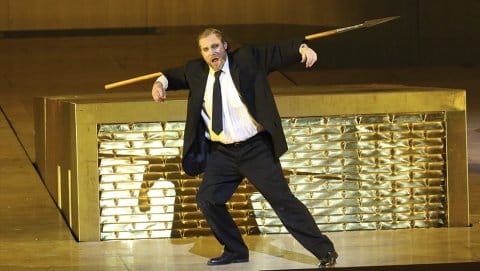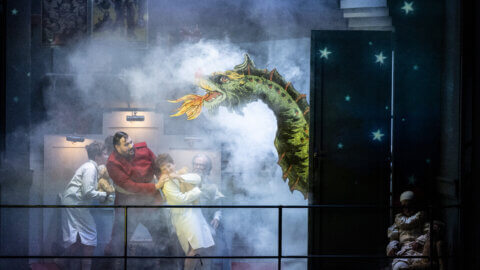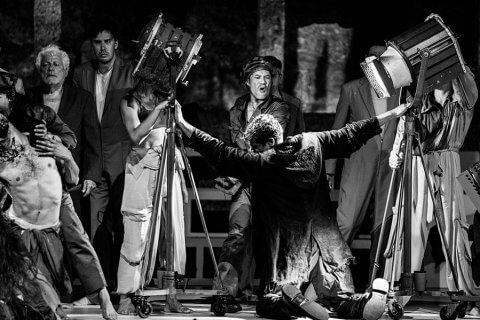DON GIOVANNI • VENEDIG LA FENICE
★★★★☆☆

Photo: Michele Crosera
DON GIOVANNI REVIEW: A BLAST OF MOZART IN VENICE
Venice has always had an air of promiscuity, with its debauched carnivals and a tantalising undertone of sexual licentiousness. The Fenice Opera gets it on with Mozart in a frivolous.
Don Giovanni with strong singers and a powerful orchestra.
Today’s serial offenders will probably find some moral support in Don Giovanni’s key sentence from Act 2. If I were to be faithful to one woman, I would betray all the others!
A reverse logic that you can chew on for a while while I scratch the coveted, Venice-born top director Damiano Michieletto’s slightly heavy, but driven staging of the Mozart/Da Ponte classic.
Michieletto (48) has set the action in a dark, palazzo-like stage design of dove-blue, baroque-patterned velour wallpaper mounted on two huge round arches that twist and turn around each other, revealing shifting spatialities with a multitude of doors to enter and exit.
Escape options are needed in this bustling whorehouse, where Don Giovanni takes the menacing ladies in turn, sighing on the stage floor in their long dresses with their rods bouncing merrily in the air. Yes, there’s a lot going on when The Charming Bastard DG rolls out.
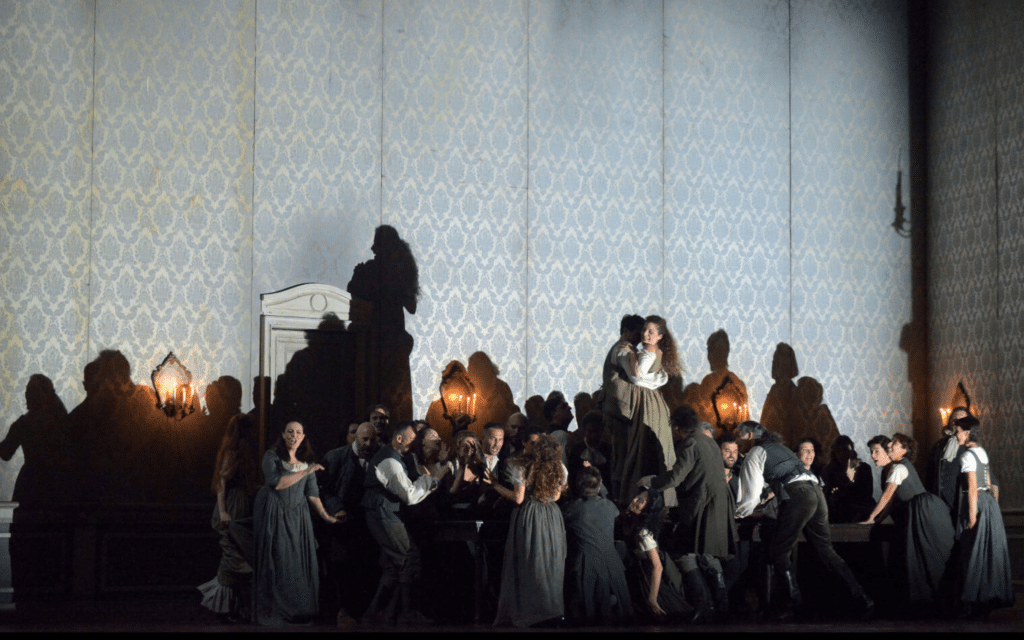
Photo: Michele Crosera
Even without the MeToo movement whispering in your ear, it’s clear that the growing band of wronged women, betrayed husbands and the duel-killed ll Comandante must eventually finish off the title character’s indefatigable fornicator.
I’ll refrain from mansplaining the plot, which I assume you know more or less already.

Foto: Michele Crosera
DG is a daring opera buffa (comedy) with the usual cheerful complications, recognizable caricatures and an ever-present, relevant moral. The finale’s smoky dinner party, in which the ghost of Donna Anna’s murdered father, the Commander, hits the bass at full throttle, is a real winner. Can you hear it? Don Giovaaaaaani!
Don Giovanni, along with The Marriage of Figaro and Cosi Fan Tutte, make up the iconic Mozart/Da Ponte trilogy, which is among the most beloved and frequently performed works of the operatic genre.
This production at the fabulous La Fenice Opera in Venice is characterized first and foremost by the high level of the cast, but not least by the quality of the orchestra, which repeatedly reminds me of how excellent opera music Mozart’s masterpiece from 1787 actually entertains with.
In keeping with the man-bashing spirit of the time, DG is made a tad more cynical, calculating and vicious than seen in other stagings.
Perhaps a slightly more nuanced, psychological presentation is missing, as DG is not necessarily an evil person. Remember to live while you do it, remember to love while you dare, I think it was once said.
Can we say that today, or has neo-puritanism triumphed?
Like the other works in the trilogy, DG is at least an hour too long compared to more comfortable formats in the modern entertainment industry. Live with it.
Close your eyes and swim in the music, is my advice.
Four stars for a well-executed opera experience at the Fenice, which is always worth the journey.
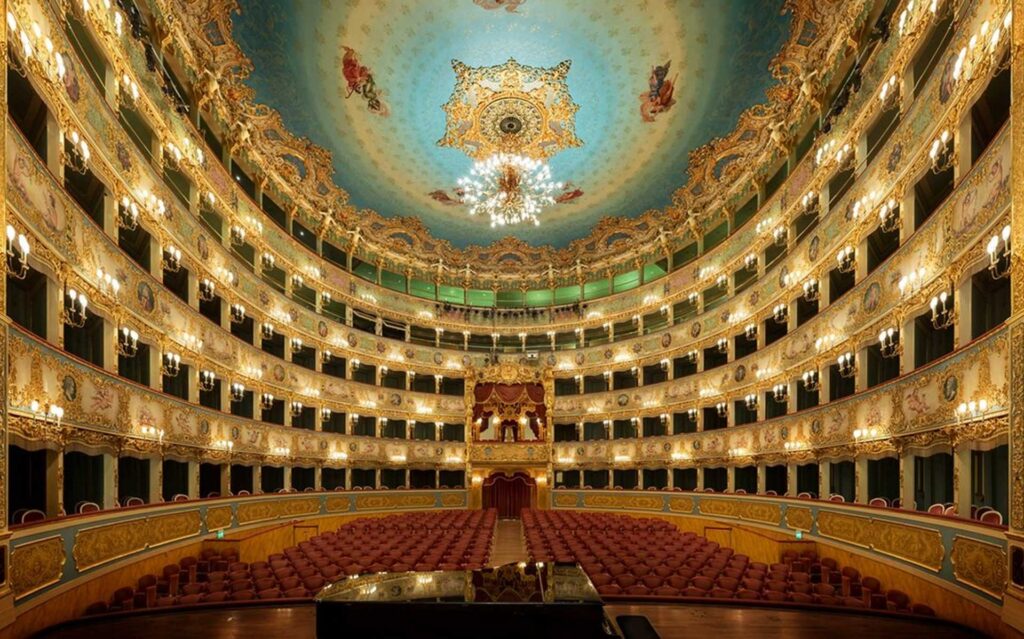
Fenice Venise
And here’s a little bonus info. Fenice means phoenix and refers to the myth of the phoenix that rose from its ashes. So did the original opera house on the site after a fire in 1792.
Unfortunately history tends to repeat itself.
In 1996, the opera house burned down again during a major renovation, causing a monumental loss to cultural history. It was at the Fenice, for example, that Verdi masterpieces such as Rigoletto and La Traviata were first performed in the 1850s.
A tragic accident – or so it was thought – until the police investigation revealed that the fire was started by electrician Enrico Carella and his cousin Massimiliano Machetti, who were behind schedule with their part of the overall renovation contract.
The delay, which was just one of too many, would result in daily fines, so they came up with the brilliant idea of burning the whole thing down in the hope that the fire would look like an accident on site and keep their contract sum intact.
They were hauled into court and sentenced to 6-7 years in prison, which Massimiliano thought he escaped by fleeing to Mexico, where he was quickly found, caught and sent back to serve his sentence.
The rebuilding cost 90 million euros and was completed in 2003 in a stunning replica of its original magnificent splendor.
Mozart died in 1791 at the age of 35 and, as far as is known, has not been resurrected.
His lyricist Da Ponte, who was born in Venice, had to reinvent himself and travelled to the United States, where he made his living as an Italian teacher and opened a grocery store. It could have been called Phoenix.

